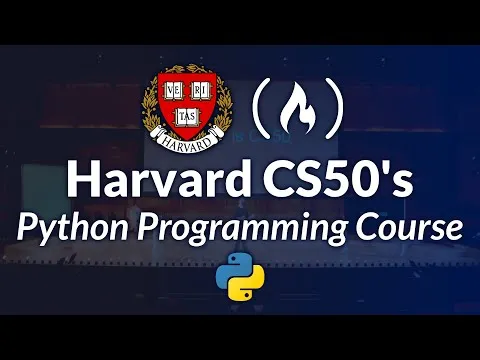
Java Programming Basics 
Learn the basics of Java programming with this online course! You'll gain a foundation in Java syntax, understand how computers make decisions, and learn to use IntelliJ, a Java IDE used by professional developers. Master these foundational programming skills and be ready to take the next step in our Java Programming course series. ▼
ADVERTISEMENT
Course Feature
![]() Cost:
Cost:
Free
![]() Provider:
Provider:
Udacity
![]() Certificate:
Certificate:
No Information
![]() Language:
Language:
English
![]() Start Date:
Start Date:
On-Demand
Course Overview
❗The content presented here is sourced directly from Udacity platform. For comprehensive course details, including enrollment information, simply click on the 'Go to class' link on our website.
Updated in [April 29th, 2023]
This course, Java Programming Basics, provides students with a basic foundation in Java syntax. Students will learn how computers make decisions and how Java keeps track of information through variables and data types. They will also learn to create conditional statements, functions, and loops to process information and solve problems. Additionally, students will be introduced to IntelliJ, a Java IDE (Integrated Development Environment) used by professional developers to build, compile, and debug code. These are foundational programming skills, and mastering them is essential for all aspiring programmers. Upon completion of this course, students will be ready to take Object Oriented Programming in Java.
[Applications]
Upon completion of this course, students will be able to apply their knowledge of Java programming basics to create basic programs. They will be able to use IntelliJ to build, compile, and debug their code. Additionally, they will be prepared to take the next course in the series, Object Oriented Programming in Java.
[Career Paths]
1. Java Developer: Java developers are responsible for developing and maintaining applications using the Java programming language. They must have a strong understanding of the language and be able to write efficient code. Java developers must also be familiar with the development process, including design, coding, testing, and debugging. As the demand for Java developers continues to grow, the job market for these professionals is expected to remain strong.
2. Software Engineer: Software engineers are responsible for designing, developing, and testing software applications. They must have a strong understanding of programming languages, such as Java, and be able to write efficient code. Software engineers must also be familiar with the development process, including design, coding, testing, and debugging. As the demand for software engineers continues to grow, the job market for these professionals is expected to remain strong.
3. Web Developer: Web developers are responsible for creating and maintaining websites. They must have a strong understanding of HTML, CSS, and JavaScript, as well as other web development technologies. Web developers must also be familiar with the development process, including design, coding, testing, and debugging. As the demand for web developers continues to grow, the job market for these professionals is expected to remain strong.
4. Mobile App Developer: Mobile app developers are responsible for creating and maintaining mobile applications. They must have a strong understanding of mobile development technologies, such as Android and iOS, as well as other mobile development technologies. Mobile app developers must also be familiar with the development process, including design, coding, testing, and debugging. As the demand for mobile app developers continues to grow, the job market for these professionals is expected to remain strong.
[Education Paths]
1. Bachelor of Science in Computer Science: This degree path provides a comprehensive overview of computer science, including programming, software engineering, and computer systems. It covers topics such as algorithms, data structures, operating systems, computer networks, and artificial intelligence. This degree is ideal for those who want to pursue a career in software development, computer engineering, or computer science research. The developing trend for this degree is to focus on the application of computer science principles to real-world problems.
2. Bachelor of Science in Software Engineering: This degree path focuses on the design, development, and maintenance of software systems. It covers topics such as software design, software architecture, software testing, and software project management. This degree is ideal for those who want to pursue a career in software engineering, software development, or software project management. The developing trend for this degree is to focus on the use of modern software engineering tools and techniques.
3. Master of Science in Computer Science: This degree path provides an in-depth understanding of computer science, including programming, software engineering, and computer systems. It covers topics such as algorithms, data structures, operating systems, computer networks, and artificial intelligence. This degree is ideal for those who want to pursue a career in software development, computer engineering, or computer science research. The developing trend for this degree is to focus on the application of computer science principles to real-world problems.
4. Master of Science in Software Engineering: This degree path focuses on the design, development, and maintenance of software systems. It covers topics such as software design, software architecture, software testing, and software project management. This degree is ideal for those who want to pursue a career in software engineering, software development, or software project management. The developing trend for this degree is to focus on the use of modern software engineering tools and techniques.
Course Provider

Provider Udacity's Stats at AZClass
Discussion and Reviews
0.0 (Based on 0 reviews)
Explore Similar Online Courses

Java fur Einsteiger

Go Further with Your Google Analytics Data

RDBMS PostgreSQL

Intro To PostgreSQL Databases With PgAdmin For Beginners

PostgreSQL: Client Applications

Mastering SQL using Postgresql

Database Design and Basic SQL in PostgreSQL

PostgreSQL: Advanced Queries

Spatial SQL with Postgres : A language for geographers

Learn SQL Using PostgreSQL: From Zero to Hero

PostgreSQL Essential Training


Start your review of Java Programming Basics